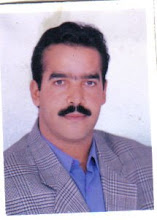Strategic Interaction
An Overview
Strategic Interaction (SI) is a teaching method that was devised by Robert Di Pietro at the University of Delaware in 1987. It involves the use of interactive scenarios to develop better communicative competence in the target language.
The SI exercises take place in three stages. The first stage is known as the Planning stage. During the planning stage, the teacher or the facilitator splits the class into two or more groups. Each group is given a different role to play within a given scenario. Then the students are given some time in which to plan their given role in the scenario.
The basic scenario is the Two-Role type, which is suitable for one encounter. In a group situation, there are two groups, and each group has a spokesperson that interacts on behalf of the whole. There are also Multiple-Roles scenarios, Group scenarios, and Open-Ended scenarios
In these exercises, the scope of the role is only limited by the students' abilities. The role is dynamic, and never plays out the same way twice. Also, the roles given to each group are unknown to the members of the other group(s) until the Performance stage of the exercise. This is important to the theme of the exercise, because the roles given to each group are slightly different in focus and/or goals. These differences produce a "twist," or point of conflict, that appears in the Performance stage.
When the students have prepared their roles, a spokesperson is appointed, and the Performance stage begins. Students' expectations of what they were going to say quickly disappear. Tthe students must attempt to maintain communication in the target language while trying to resolve the conflict that has arisen. The goal of the exercises is for the students to work creatively in the target language to resolve the conflict successfully. The end result is that no scenario has the same ending.
The third stage of the exercise is known as the Debriefing stage. Now, the teacher or the facilitator regroups the class, and discusses the events of the Performance stage. There may be a discussion of discourse, cultural, or grammar problems that appeared during the performance. In this stage, the teacher can also provide feedback on how to improve communication and/or performance at key points in the scenario, so the students will be better prepared to perform in future scenarios.
For further details, please refer to Mr. Joe Matterer`s handouts or visit thfollowing websites:
www.amazon.com/Strategic-Interaction-Languages-Scenarios-Cambridge/dp/0521324254
www.upenn.edu/pennpress/book/714.html
Subscribe to:
Post Comments (Atom)


No comments:
Post a Comment